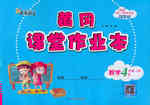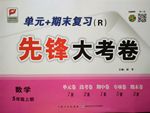题目内容
Auckland is New Zealand’s largest urban area with a population of just over a million people. It is not, however, the capital, although it was at one time, until the capital moved to Wellington. Auckland is the center of commerce and industry, and is perhaps the most energetic, prosperous and multicultural city in New Zealand.
The city’s landscape is decided by volcanic hills, the twin harbors, bays, beaches and islands. Its nickname “the city of sails” is very suitable. Auckland has more boats for each person than anywhere else in the world.
Auckland has many volcanic hills, many of which currently afford great views of the city. And Auckland’s geography is such that shiny waters seem to attract people from every point. It is a water lovers’ best place, with some of the best beaches, swimming, diving, fishing, sailing, windsurfing and water sports in the country.
Wellington is the capital city of New Zealand. It is also the cultural, administrative and political center of the country. Two aspects of the city that will immediately strike  any visitor are the harbor and hilly landscape. Everywhere you go, the sounds and the smell of the ocean hang in the air, and green hills and valleys wrap you in a bear-hug embrace. At night, Wellington offers a spectacular, shimmering(闪闪发光的) cityscape that is unlike almost anywhere else in the world. Even after seeing it for a hundred times, it takes your breath away.
any visitor are the harbor and hilly landscape. Everywhere you go, the sounds and the smell of the ocean hang in the air, and green hills and valleys wrap you in a bear-hug embrace. At night, Wellington offers a spectacular, shimmering(闪闪发光的) cityscape that is unlike almost anywhere else in the world. Even after seeing it for a hundred times, it takes your breath away.
Wellington is a scenic, windy and diverse place. It has some of the best museums, art galleries, restaurants, and coffee houses in the country. It is the storehouse for the nation’s historic, cultural and artistic treasures. Being the first place where European settlers arrived, it also boasts lots of historic streets and buildings.
Wellington is host to an excellent Festival of the Arts every two years.
1.What would be the best title for the passage?
A. The Landscape of New Zealand B. The Capital of New Zealand
C. Auckland and Wellington D. Welcome to New Zealand
2.Auckland is the best city in New Zealand for people to ______________.
A. study New Zealand culture B. see green hills
C. visit historic streets and buildings D. do water sports
3.What’s the author’s attitude towards the cityscape in Wellington?
A. Critical B. Neutral
C. Preferable D. Indifferent
 教育世家状元卷系列答案
教育世家状元卷系列答案 黄冈课堂作业本系列答案
黄冈课堂作业本系列答案 单元加期末复习先锋大考卷系列答案
单元加期末复习先锋大考卷系列答案
